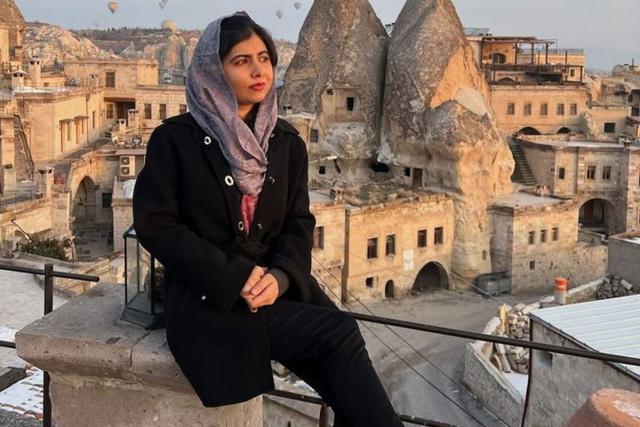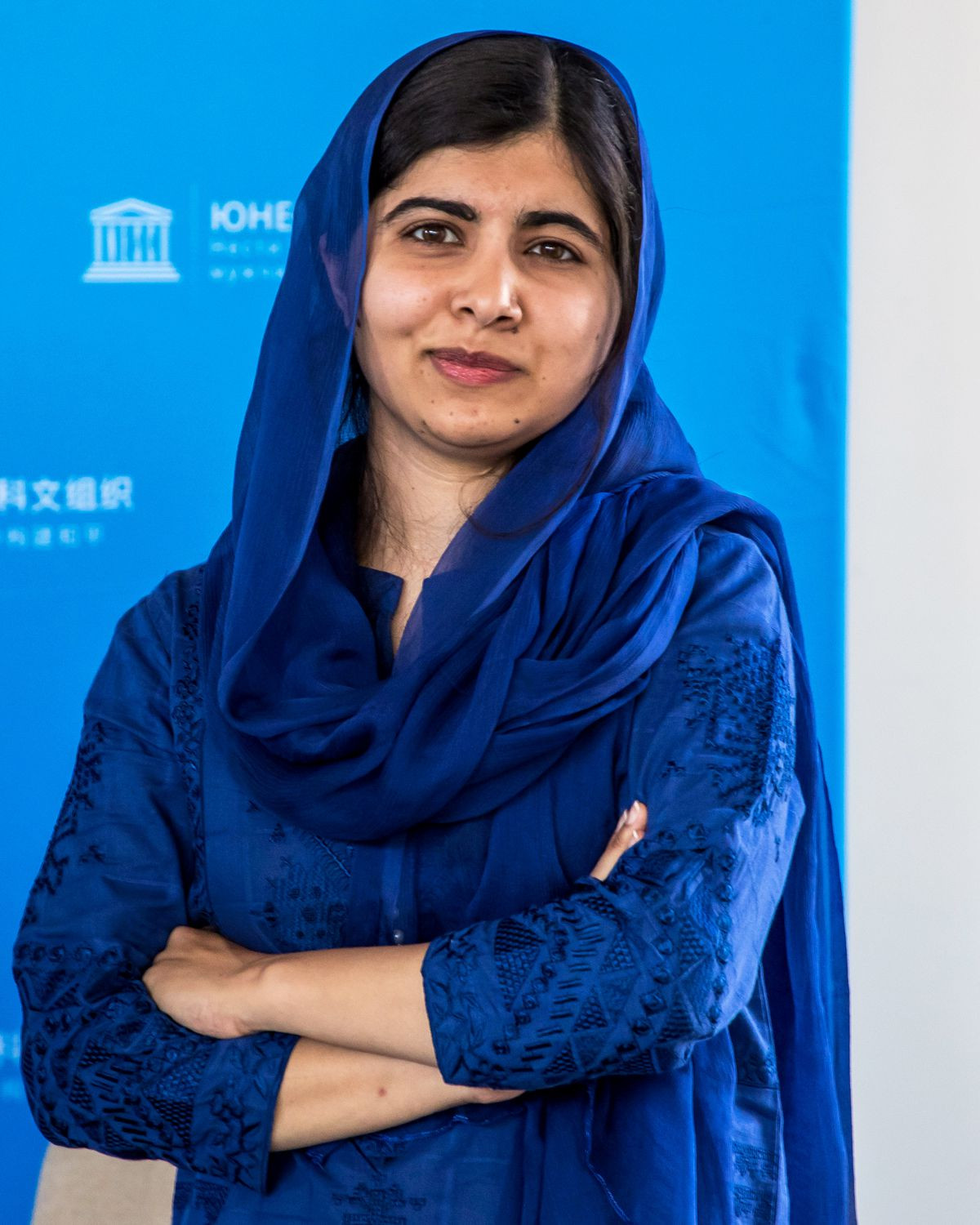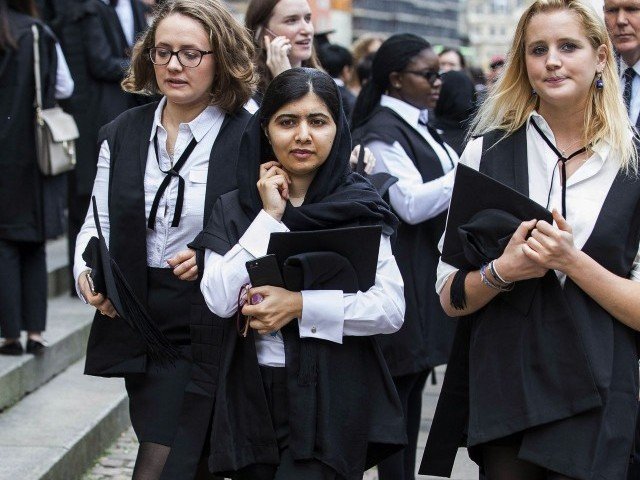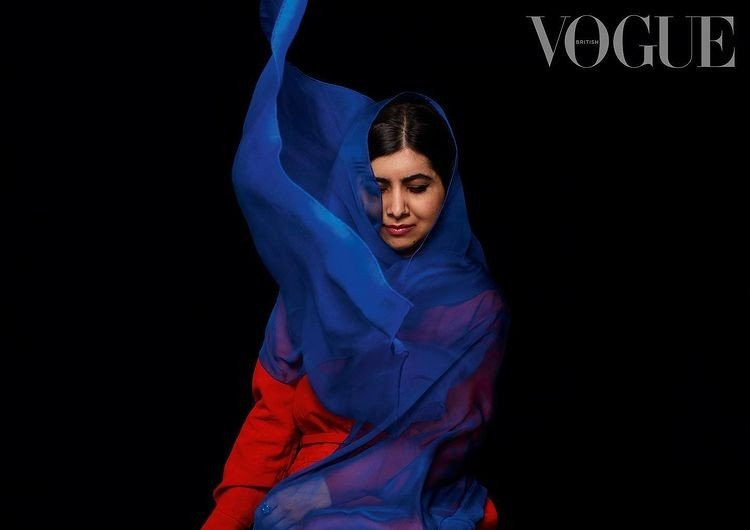Women have the right to choose between burqa and bikini: Malala
As Women's Day approaches, Malala shares her two cents on defending every woman’s right to determine what she wears

The youngest Nobel-Prize laureate, Malala Yousafzai, has often made headlines while sharing her opinion on imperative matters. As Women's Day approaches, Malala has put her words to paper and shared her two cents on defending every woman’s right to determine what she wears.
She started with how one of her relatives complained to her father about how she "should be at home, not in front of the cameras," as she gave interviews to the local publications while shedding light on the need for girls' education in her hometown. She further revealed that her relative then added how if Malala was "going to speak, she should at least cover her face!” She penned, "Girls should be neither seen nor heard – and especially not both at once."
1614936113-1/Malala-Y--(1)1614936113-1.jpg)
Adding on, she continued, "Many people in Swat Valley, Pakistan shared his [Malala's relative] perspective. Like other Pashtun women, my mother wore a long, hefty embroidered shawl that swirled around her shoulders and covered her face." Malala further shared, "When the Taliban took over Swat Valley, these shawls were not Islamic enough for them. They mandated that all women must wear a black abaya and shuttlecock burqa. Dare to step outside in anything other than the uniform chosen for you by Taliban men and you risked a severe beating. I, too, wore a burqa for a while when I was 10 or 11 years old."
She then commented how in Pakistan today, Muslim girls’ and women’s clothing varies by region, community and family. "They might wear shalwar kameez or a business suit. They may wear a scarf around their neck, on their head, covering their face, or no scarf at all. They might wear a burqa," Malala asserted. She added, "As Pakistani girl transitions into adolescence, her family, neighbours and even strangers expect her to look a certain way. How a girl chooses to dress determines what people think of her and how they will treat her. If you do not follow your community’s established dress code, you’re a threat to the culture, to religion. You’re an outsider, not to be trusted or befriended."
Malala, however, said was determined to decide for herself. "My face meant identity, presence and power for me – and I refused to cover it," she wrote.
Policing women on clothing

"Around the world, girls are under attack for what they wear. Last month the Indian state of Karnataka banned girls wearing hijabs from classrooms and colleges, forcing them to choose between their education or suffering the humiliation of removing their head coverings at the school gates. Senators in France voted 160 to 143 to ban hijabs in sports competitions in January," she then communicated. "Until last year, schools in Indonesia directed all girls to wear a jibab covering their head, neck and chest. Though a recent government decree banned this practice, Christian and other non-Muslim girls report some teachers are still insisting that they wear the jibab. Meanwhile in Afghanistan, Taliban officials advise women to wear blankets to work."
Adding on, Malala retorted, "South Africa’s High Court found that a school had violated a Hindu girl’s rights by requiring her to remove her nose ring. Schools in both the United Kingdom and United States have punished Black girls for their hairstyles, sending them home or giving them detention for wearing their hair as they pleased. The International Handball Federation required women to wear revealing outfits in competition, while a woman in a similar outfit was told she couldn’t board a plane unless she covered up. In Japan, women are told to wear high heels and take off their eyeglasses at work."

Malala continued that women and girls in every corner of the globe understand that, if they are harassed or assaulted on the street, their clothes are more likely to face trial than their attackers.
"Women are constantly being told to put on or take off various items of clothing, constantly sexualised or suppressed. We are beaten at home, punished at school and harassed in public for what we wear," she remarked. "Years ago I spoke against the Taliban forcing women in my community to wear burqas – and last month I spoke against Indian authorities forcing girls to remove their hijabs at school. These aren’t contradictions – both cases involve objectifying women. If someone forces me to cover my head, I will protest. If someone forces me to remove my scarf, I will protest."
She then made a point and shared, "Whether a woman chooses a burqa or a bikini, she has the right to decide for herself. Come and talk to us about individual freedom and autonomy, about preventing harm and violence, about education and emancipation. Do not come with your wardrobe notes."
Malala's 'westernised' shift

The 24-year-old then spoke about the time when people criticised her for wearing jeans and a jacket in a picture. "A decade after the Taliban forced women in my community to wear burqas, a photo of me at college in Oxford made news around the world. In it, I am wearing a jacket, jeans and a scarf around my head," she wrote.
Further adding on, Malala commented "Some people were shocked to see me out of the traditional shalwar kameez I wore for much of my early life. They criticised me for being too Western and claimed I had abandoned Pakistan and Islam. Some said the jeans were permissible as long as I kept my scarf on. Others said my scarf was a symbol of oppression and I should take it off as if I could not be fully emancipated until I erased all traces of my ethnicity and faith. I said nothing. I felt no obligation to defend myself or meet anyone’s expectations of me."

Malala then opines, "The truth is, I love my scarves. I feel closer to my culture when I wear them. I hope girls from my village will see that someone who looks like them and dresses like them can complete her education, have a career and choose her own future."
She concluded with, "Someday I might make changes to my wardrobe. I also might not. But exploring and understanding clothing will remain part of my life, as will defending every woman’s right to determine what she wears. I love my patterned, floral shalwar kameez. I love my jeans too. And I am proud of my scarves."
Have something to add to the story? Share it in the comments below.


















COMMENTS
Comments are moderated and generally will be posted if they are on-topic and not abusive.
For more information, please see our Comments FAQ